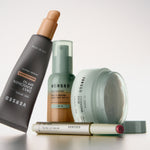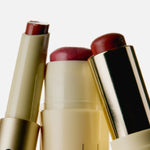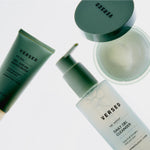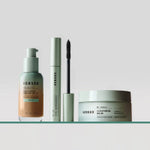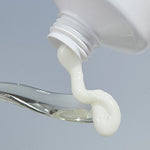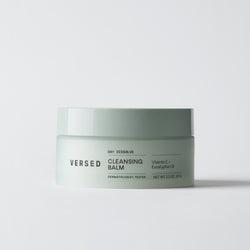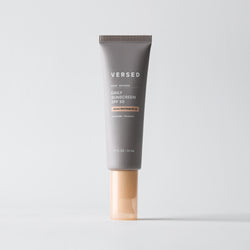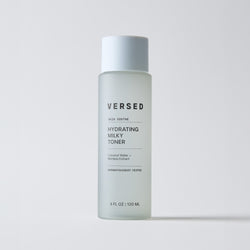Is it just us or does performing a daily skincare routine sometimes feel like we’re channeling our inner cosmetic chemist? Between using a dropper to squeeze out the exact amount of serum to mixing different ingredients, we’re practically ready to slip on our lab coat and get to work.
Obviously, there is a lot more that goes into product formulation than that (just ask our Product Development team), the biggest piece being the extensive amount of knowledge they have about skincare and ingredients. So who better to turn to with our own formula questions than a chemist herself? We reached out to skincare chemist April Basi to ask her for advice on ingredient percentages, the difference between synthetic and natural formulas (and whether one is superior to the other), her favorite ingredient combinations, and more. Read her answers below. 
How important is the ingredient percentage in a formula?
“Ingredients lists (IL) are arranged in descending order, therefore the % of an ingredient is important if it is among the first five to seven ingredients in the IL,” says April. “As you go lower in the IL, the ingredients are almost negligible.” We include the ingredient percentages for all active ingredients in a formula, such as retinol or tranexamic acid. That being said, trust the skincare chemists! If the percentages don’t make sense to you but a formula works for your skin, there’s no need to worry about it.What ingredient combinations do you recommend?
“Vitamin C, ferulic acid, and vitamin E. Vitamin C is a powerful antioxidant; combining it with vitamin E and ferulic acid boosts its antioxidant levels by up to 4x.”“I also recommend niacinamide and retinoids. Niacinamide helps boost the cell-renewing properties of retinoids and also helps reduce the possibility of irritation.”
What two ingredients would you never mix together?
Benzoyl peroxide and retinoids. “These two ingredients cancel each other out when used together, rendering each other dormant. That’s because they both have the same line of action (they’re cell-renewing ingredients).” Benzoyl peroxide can be drying and irritating to the skin too, so if you’re looking to treat acne, opt for the BHA salicylic acid instead. It clears pores and dissolves oil, but does so gently—which is why we included 1.5% salicylic acid in our Acne-Calming Cream Cleanser.Do synthetic ingredients work just as well as the real thing (a.k.a. natural ingredients)?
“Yes absolutely. It is a myth that natural ingredients work better. Formulators often find it hard to preserve natural products, they have very low potency levels, and are more likely to cause irritation when compared to their chemical counterparts.” Another perk sustainability-wise is that lab-created ingredients can sometimes be better for the environment. For example, naturally-derived hyaluronic acid can come from the umbilical cords and fluids in the joints of cows and horses, but you can get the same exact hydrating results from the synthetic, vegan version (the only kind we use).How did you become a cosmetic chemist? What does that job entail?
“I obtained my bachelor's degree in chemistry, landed an internship shortly after, and was able to leverage that experience to secure a job as a chemist in a personal care company. The job entails long hours of being on your feet, great math skills, intense focus, and attention to detail, especially when making a dual-phase product,” like an Antioxidant Oil-Serum.How do you make sure a product formula remains stable in conditions like extreme heat, extended periods of time, etc?
“For products that contain active ingredients, (like sunscreen) we make sure those formulas are put under stability [testing] for two years in different temperatures. They must pass certain specifications like odor, viscosity, specific gravity, and pH tests by the end of the two-year mark before they can be sold to the public.”Looking for more expert advice? Read the difference between retinol and retinoids according to dermatologist Dr. Liu.
